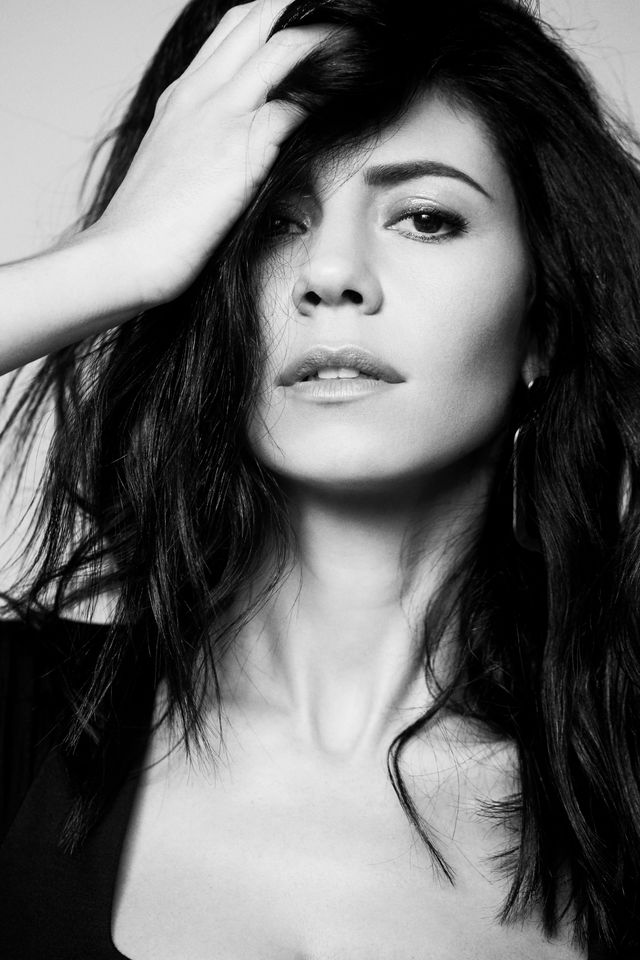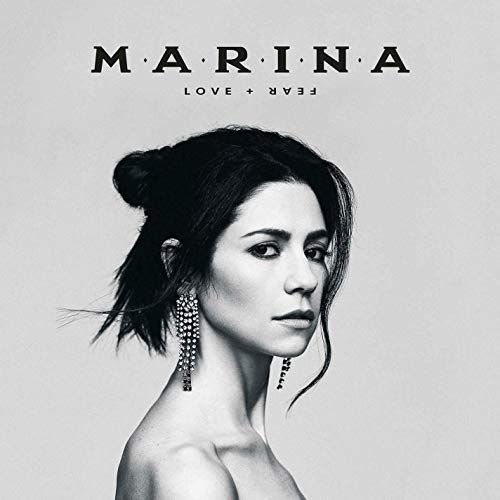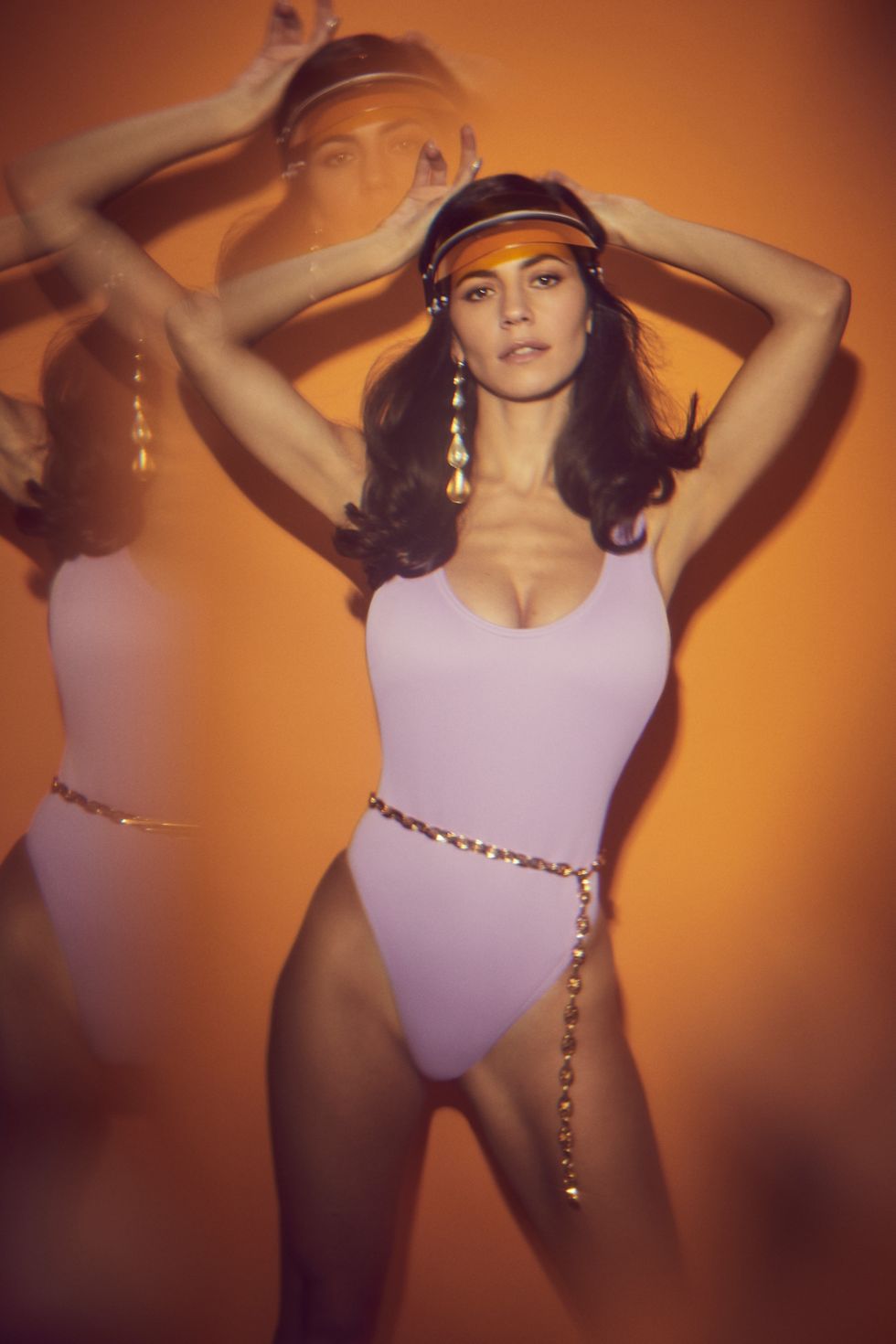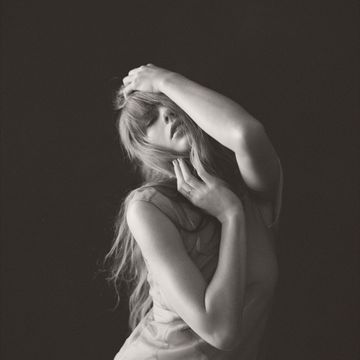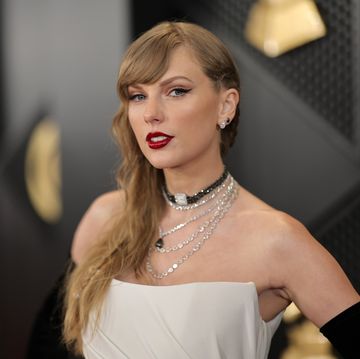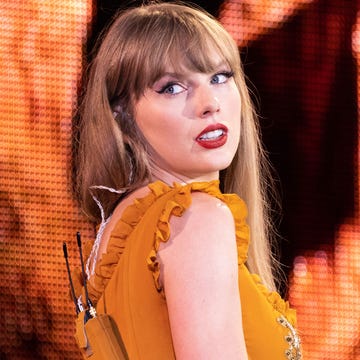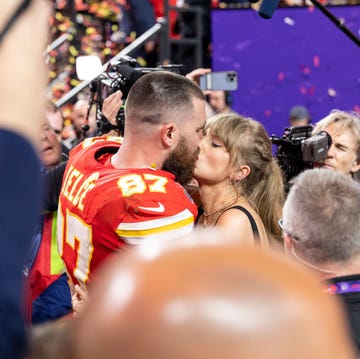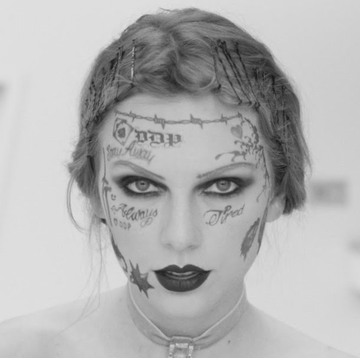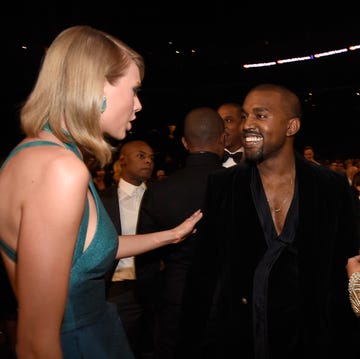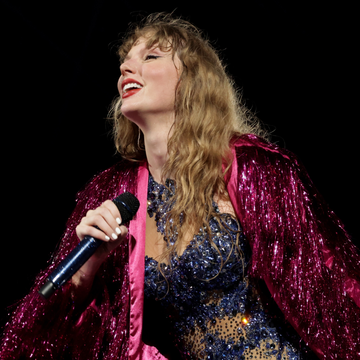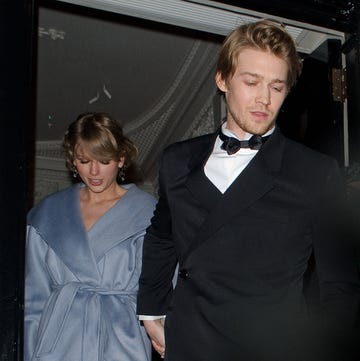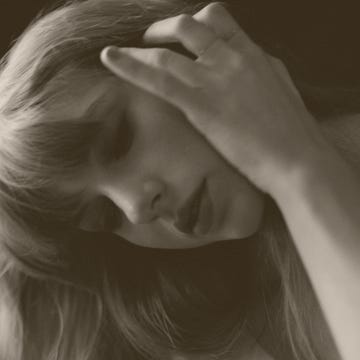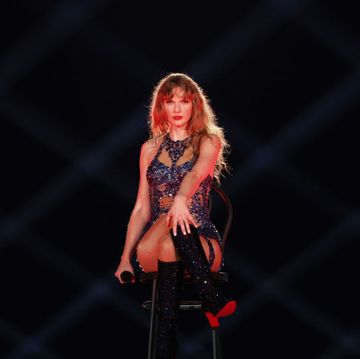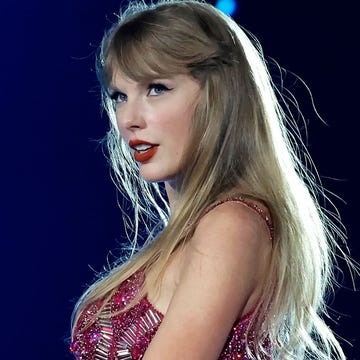Marina, formerly known as Marina and the Diamonds, has a distinctive ability to create an artistic era for each of her albums. The Family Jewels (2010) saw the Welsh pop singer introducing herself with eye-catching, avant-garde looks to supplement her alternative sound. Her sophomore album, Electra Heart (2012), traded that for all things '50s and '60s vintage and pastel—but the bubblegum image and glossy, synth-driven production held darker context. And then there was Froot (2015), which saw Marina embracing neon catsuits, futuristic metallics, and dazzling outer-space imagery while incorporating more live elements into her reflective songs.
As it turns out, we're still only scratching the surface of who Marina is as an artist. Now, Marina—full name Marina Lambrini Diamandis—is trying something new: being herself. After a period of melancholy that stemmed from struggling to find her purpose in life, she decided it was time to take a step back. Through soul-searching, the songstress reignited her passion for music, snipped "the Diamonds" from her stage name after 10 years, and rose from the ashes to create a new album.
Inspired in part by her psychology studies at the University of London and her love of Swiss psychologist Elisabeth Kübler-Ross, whose ideology states that "there are only two primary emotions, love and fear," Marina realized that the 16 tracks she wrote for the album fell into these two categories—and thus, Love + Fear, which is out today, was born.
A mix of vulnerable and introspective songs, Love + Fear centers on a longing to enjoy life, the desire for unity within the human race, and the process of finding purpose. The result? One of Marina's most compelling albums to date.
Ahead of Love + Fear's release, Marina spoke with ELLE.com about what led to her break from music, the surprising influence Donald Trump had on the record, and why she is perfectly happy not being famous.
You once believed you’d quit music for good—why was that?
I felt like I stopped growing, and I didn't feel the same level of passion as I used to. I was stuck at the time, because I hadn't lived my life as an adult outside of being an artist. Since I was 22, I was constantly projecting myself into my work, and after a while I said, "Well, I can't see a space for me to continue in that form." As a 31-year-old, it was completely terrifying. I was like, "What's the point in life? I don't know where I fit in, what my purpose is. How can I contribute in a positive way?" I had to support my own internal change.
How did you begin healing once you discovered the root of the issue?
I kept trying different things instead of staying at home moping and doing nothing about it. I tried acting. I took painting courses. I did floristry arrangement. All things that were creative and exciting, but didn't feel quite right. After a while, I decided, "Maybe I should go to university." Psychology felt like a natural home for me. I've read psychology books extensively over the past decade, so it felt like a natural choice that was staring me in the face for a long time.
How did psychology influence this album? Love + Fear seems to explore those themes more than your previous releases.
Psychology gave me more of an objective view of life, which has made me address these subjects in a simpler way. When you're in your own inner turmoil, you can't see clearly. My past lyrics are very concrete, specific, and quite strange. With Love + Fear, that conflict is gone inside of me, so I'm able to view and express things more directly. Part of it is growing up and looking less into yourself. Once you deal with the problems you had growing up, you start to look outside to the world. Political changes and problems over the world have also caused a lot of us to do that.
According to you, “To Be Human” is the core of the record, and discusses the state of society today. How did that song happen?
It comes from what we've gone through in the past four years. Ever since [President] Trump came into power, we've seen an erosion of our values and our sense of unity. Human beings at the best of times aren't that unified. I wanted "To Be Human" to highlight or elaborate the fact that we are all the same, that we are all part of the human race. We don't have that feeling of oneness or unity anymore because these political changes have completely disrupted that, and have encouraged division. That has really hurt my heart, because it's so hard for me to accept that people are still like that.
Do you feel like you have more of an idea of what it means to be human now?
I do understand it more, in that I think human beings are like messy and chaotic by nature. Humans are always trying to categorize and label things because it helps our brains on a physiological level to separate and get through everyday life easily. I think I'm more at peace with the fact that we are all messy and chaotic.
Songs like "Enjoy Your Life" and "Orange Trees" are filled with positive vibes and happy energy. How did you come to this state of contentment?
When I wrote "Enjoy Your Life" and "Orange Trees," I didn't really feel happy, but I had an idea of the type of life that would make me feel happy. I was really yearning to have that, which is why I think the songs are so jubilant.
Songs like "Numb" and "Starring Role" have played with the idea of being "number one." Is that still a goal for you?
No. It isn't a goal anymore because I've been able to succeed in my own way. Wanting to be number one came from the stress of the Electra Heart era, because I wanted to make a commercial album that would do well. Since then, I've done Froot, which wasn't played a lot but did really well because of my fans. My fans have made and supported my career because I'm not a standard artist that's always supported by media, and I'm actually fine with that.
I also feel people always say, "This artist is so underrated." I think it comes from a sweet place, but how we define success for artists doesn't suit every artist. I would not want to have fame. I like my life as it is.
How do you define success now?
I think success is being able to be yourself. I know that sounds quite basic, but for me as an artist, it's being able to be myself in a real, authentic way. That's the ultimate success, as a human being.
Would you say that Love + Fear is your most personal album?
Every album I've made has felt so personal. I can see that with Love + Fear, the writing is more honest and direct. With Electra Heart, there was so much imagery stacked into those songs that it placed a barrier between the people listening. By comparison, Love + Fear doesn't have the fantasy or illusory element that Electra Heart did.
What do you want fans to take away from Love + Fear?
I think each person will take away what they need to at that time. I don't think there is one overarching message, but I do hope that it brings something positive to people's lives. That's really important to me—feeling good about investing a lot of time in being an artist.
Love + Fear is out now.
